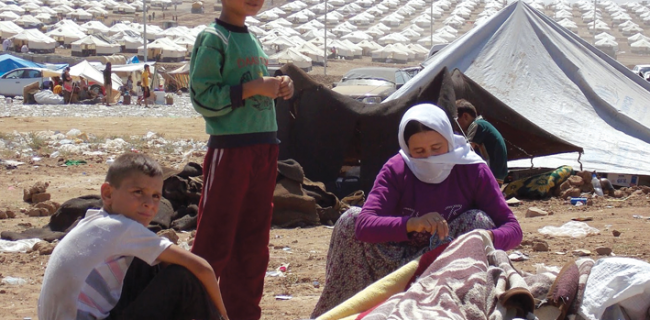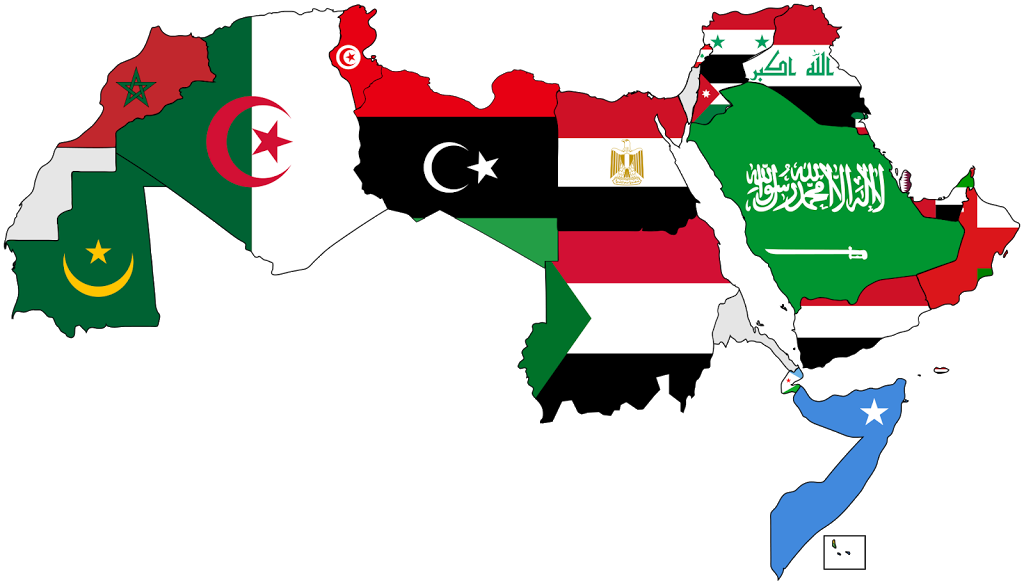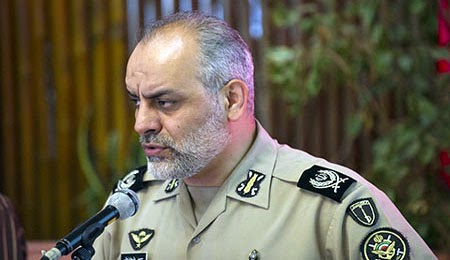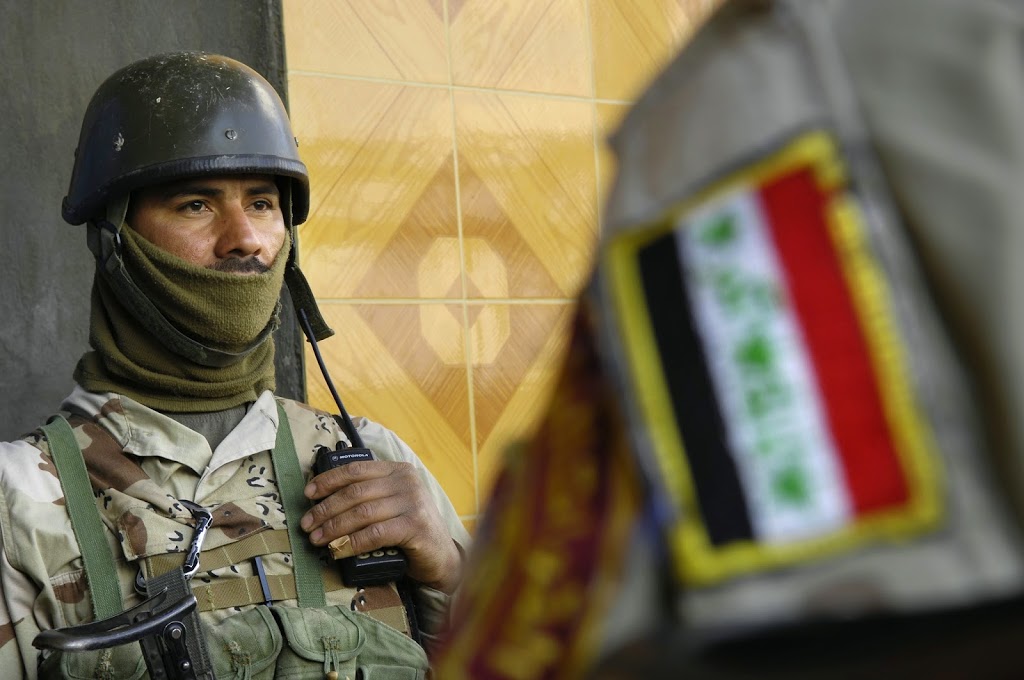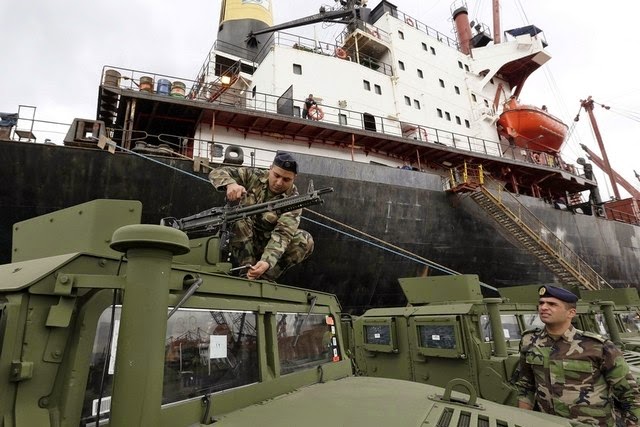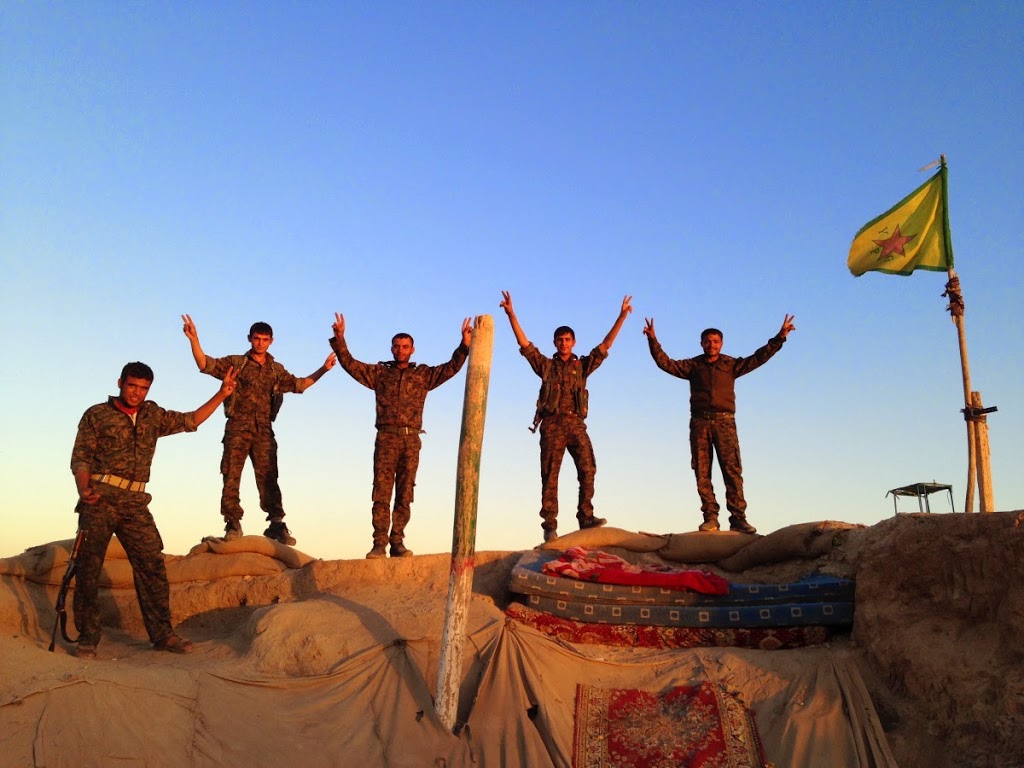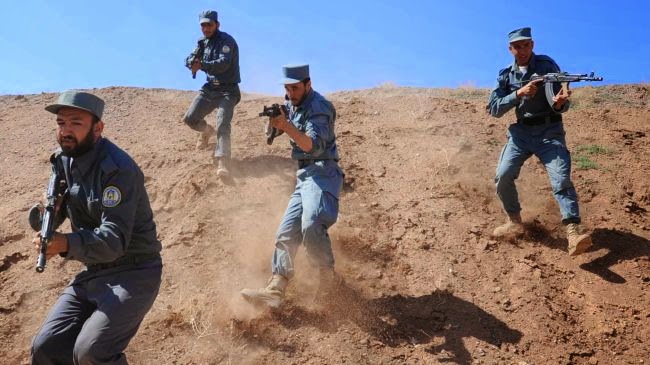The Middle East conflict in 1,001 easy lessons
To an outsider, the Middle East has always been somewhat confusing, and with good reason. The region seems to be in perpetual turmoil, constant anger and increasing hate and growing violence. Recently, the perpetual anger, hate and violence have taken the region to a dimension of new horror. What exactly seems to be the issue in the Middle East?
Well in very simple terms it’s like this:
The civil war in Syria has weakened the government of President Bashar Assad and allowed resistance groups to establish a foothold in territory taken over when government forces were defeated.
The strongest of the rebel forces was the group that became known as the Islamic State, also known as the Islamic State in Iraq and Syria, also known as Islamic State in Iraq and the Levant.
Unlike most of the other Syrian resistance groups who are fighting to liberate Syria from Bashar Assad, ISIS wants much more. As a first step ISIS wants to take over the countries surrounding Syria and Iraq.
They use extreme violence as means of intimidation and do not shy away from killing people by the thousands. They claim to be purists in Islam, but have been denounced for their terror behavior by most of the Arab and Muslim world.
Even al-Qaida, condemned them for the horrific manner in which the captured Jordanian pilot was murdered. Osama bin-Laden and his replacement, Ayman al Zawahiri, were both against the pre-mature establishment of the caliphate, and told Abu Bakr al-Baghdadi not to go ahead. He did anyway.
ISIS is a Sunni Muslim movement, though that has not prevented them from going to war with the Kurds who are also predominantly Sunni. The top leadership and many of the initial members of this organization are former members of the Iraqi Baath Party under former leader Saddam Hussein. Many are battle hardened.
The dual conflict — the war in Syria and the absence of peace in Iraq – have given rise to a plethora of alliances, counter-alliances and counter, counter–alliances, and in the process rendering the age-old adage “that the enemy of my enemy is my friend,” somewhat irrelevant. Sometimes the enemy of my enemy is now my enemy and sometimes not.
Who are the friends and who are the enemies? ISIS has murdered thousands of Shiites simply because they were Shiites. The government in Baghdad is mostly Shiite and is supported by the United States and by Iran. So the US and Iran finally see eye-to –eye and are fighting on the same side? Not exactly.
Iran also supports the regime in Damascus, whom Turkey, and the U.S. want to see toppled, and while the US and Iran find themselves on the same side, yet one should add, at the same time, the U.S. and Iran are involved in nuclear talks. Additionally, Iran supports the Lebanese Shiite movement, Hezbollah, which the United States considers a terrorist organization.
And while Turkey, a member of the North Atlantic Treaty Organization, along with the U.S., find themselves allies in NATO, they disagree over which side to support in the Syrian conflict.
Washington continues to disagree with its regional allies on how to proceed in Syria. Although Washington is leading the campaign against IS, it does not seem fully committed to the task. Frustrated by Washington’s half measures, Turkish President Recep Tayyip Erdogan, in a speech in early January criticize President Obama, saying: “If you are doing something, do it properly. If you are going to do it with us, you need to value what we say.”
The end game for IS is to topple the government of Saudi Arabia and destroy the state of Israel. Strange as it may seem, this has not prevented Saudi Arabia from offering limited support to IS, not so much for its willingness to take on Israel, but more so because IS is possibly the only entity capable of defeating the Syrian government.
Israel on the other hand must be delighted to see both ISIS and the Syrians weakened. However it is very premature and potentially very dangerous for the Jewish state to think that this is a good thing in the long run. A victory by the Islamic State over Damascus would place the IS terrorists right on Israel’s back door.
This in a nutshell is the Middle East today. To paraphrase a former French ambassador in the region: “If you think you understan the problems of the Middle East it means it was badly explained to you.”
Indeed, to begin to understand the full complexities of the region it could well require a thousand and one nights, and then some.
Source: Claude Salhani- Trend
Drone kills veteran Afghan militant with suspected ISIS links
A drone strike in Afghanistan killed six people on Monday including a veteran militant suspected of having defected to Islamic State from the Taliban, senior Afghan officials in Helmand province told Reuters.
A former Guantanamo Bay detainee, Mullah Abdul Rauf has been influential in Afghanistan’s jihadi movement for more than a decade. The US-led coalition in Afghanistan did not immediately respond to requests for comment.
The police chief and the deputy governor in Afghanistan’s southern province of Helmand both said Rauf was killed.
Police chief Nabi Jan Mullahkhel said Rauf was travelling in a car when the drone attacked. The other casualties included his brother-in-law and four Pakistanis, Mullahkhel said.
Iranian military official announce his country’s readiness to train Iraqi officers and Peshmerga
President of the leadership of (Davos) College of the Iranian Army Brigadier , Hussein Weleonid on Monday, his country’s readiness to train Iraqi officers, including officers of Peshmerga.
Brigadier-General Weleonid said in a press statement that the issue of training Iraqi officers was submitted during the last visit of the Iraqi Minister of Defense to Iran, declaring that the Iranian army is ready to do so.
In response to a question asked whether Iran is ready to train Kurdish Peshmarga forces in Iraq, he said that Davos has ties of cooperation with the armies of the world, announcing a willingness to train officers in the armies of friendly countries.
He explained that Davos College is develop training courses for officers of other states or the dispatch of the trainees to it in the framework of the security and defense cooperation agreement to be signed with the Ministry of Defense and support of the Iranian armed forces.
Source: shafaaq.com
Iraq to launch ground offensive against ISIS as Jordan pounds group’s strongholds in Syria
Iraqi troops will begin a “major ground offensive” in coming weeks to regain control of territories captured by the Islamic State group, General John Allen, the U.S. coordinator for the anti-ISIS coalition, said, in an interview to Jordan’s Petra news agency on Sunday.
“In the weeks ahead, when the Iraqi forces begin the ground campaign to take back Iraq, the coalition will provide major firepower associated with that,” Allen reportedly said, adding that the U.S. is “doing all it can” to aid the Iraqi army.
Since June last year, ISIS has seized vast swathes of territory in Iraq, including the cities of Mosul and Tikrit. In November last year, the Iraqi army had reportedly retaken the Baiji oil refinery, the biggest in Iraq, located about 130 miles north of Baghdad. However, fierce fighting has continued in the region and nearly 150 people were killed during the most recent clashes in the town on Sunday, according to media reports.
Allen also said, in the interview, that the anti-ISIS offensive in Syria would take much longer as the U.S. lacked a coalition partner in the country. “We have a partner at all levels in Iraq but we don’t have a similar partner in Syria. So the work that must be done by the coalition in Syria is going to take longer,” he reportedly said.
Meanwhile, Jordan announced on Sunday that it had destroyed 20 percent of ISIS’ military capabilities so far, according to media reports.
“We achieved what we aimed for. We destroyed logistics centers, arms depots and targeted hideouts of their fighters,” General Mansour al-Jbour, head of the Jordanian air force, said on Sunday, adding that Jordanian warplanes had carried out 56 airstrikes on ISIS targets in Syria since Thursday, according to media reports.
“We are determined to wipe them from the face of the Earth,” al-Jbour reportedly said.
Jordan has stepped up its military offensive against ISIS after the group released a video last week showing Jordanian pilot Muath al-Kaseasbeh being burned alive in a cage. Following the release of the gruesome video, the Jordanian government vowed a “relentless war” against the militant group.
US arms arrive in Beirut as date is set for Saudi-French deliveries
A US shipment of military equipment worth US$25 million arrived at Beirut’s port on Sunday, as it was announced that the first deliveries of Saudi-funded French weapons to Lebanon would begin in April.
Both are aimed at bolstering the Lebanese army’s fight against extremist forces on the border with Syria.
The US shipment included howitzers, Humvees and 26 million rounds of ammunition. It comes in addition to more than $100m (Dh367m) in military aid that Lebanon received from the United States last year.
A time frame for the French weapons delivery was confirmed by France’s foreign minister Laurent Fabius in a meeting with Lebanese prime minister Tammam Salam at the global security conference in Munich on Sunday.
It comes after Saudi Arabia pledged $3 billion to fund the purchase of French weapons – including helicopter gunships, armoured personnel carriers, heavy artillery and surveillance drones – in December 2013.
The military aid, which will allow the Lebanese army to modernise, will be supplied over the next three years.
The announcement will come as welcome news to Lebanon, which has been facing growing daily battles with ISIL and Jabhat Al Nusra on the country’s eastern frontier.
Military experts previously expressed fears that the army’s fight against the militants was being hampered by the delay in military aid arriving, and had called for the speedier delivery of arms.
The US stepped up its shipments of military aid to Lebanon when the threat of extremists on the border became clear and the UK has helped the Lebanese army reinforce its frontier with watchtowers, materials to build defensive positions and donations of body armour and Land Rovers.
But the biggest prize so far has been the arms pledge from Saudi Arabia, which was formally signed in November last year. Last August, the Saudis also announced they were giving Lebanon’s security forces an additional $1bn grant to confront ISIL and Jabhat Al Nusra, who have launched a series of brutal attacks on the country.
On January 23, militants attacked a remote Lebanese army outpost on the border, killing eight Lebanese soldiers. Last August, Jabhat Al Nusra and ISIL captured the Sunni border town of Arsal in a joint attack before Lebanese artillery and armour wrested control of the town from the militants.
Despite news of the impending weapons deliveries from France, however, the impact of the Saudi-French arms deals may not be felt for some time.
“It’s not really a direct impact because you need time … to train the people, to incorporate it into the system,” said Elias Hanna, a retired Lebanese army general. “If they start today they need more than six months for good results.”
Of the additional $1bn grant announced in August, more than $500m is earmarked for the Lebanese army, according to Aram Nerguizian, a senior fellow at the Washington-based Centre for Strategic and International Studies. Mr Nerguizian said this would probably be spent on US weapons, including advanced systems that Lebanon has never had before.
“If you didn’t have the Syrian civil war and the threat from [ISIL] and Nusra … you wouldn’t have this degree of willingness to entertain the kinds of transfers that might take place” within the coming months and years, he said.
But considering the scale of the threat, the pace of delivery has been slow.
While the US has increased its arms transfers to Lebanon, some say the army has so far received relatively little. “I wouldn’t say peanuts, but not sophisticated or heavy weapons”, said Hisham Jaber, a retired Lebanese general, who also served as the country’s defence attaché to France. He said Western nations’ long-standing hesitancy to give Lebanon sophisticated weapons was driven by a desire to appease Israel.
“We need everything: we need tanks, we need artillery, we need helicopters, we need hospitals,” he said.
Before France’s announcement on Sunday, Gen Jaber had said that Beirut should entertain previous Iranian offers to arm the military. In supporting the Assad regime in Syria and government-aligned Shiite militias in Iraq, Tehran has shown its ability to flood conflict zones with arms quickly and effectively.
Hizbollah politicians had also decried how long the Saudi-French arms transfer has taken and encouraged Lebanon to seek arms from Iran.
But Gen Hanna said that the kinds of arms that could be immediately furnished by Iran would not necessarily be of the type required by the Lebanese Army in its fight against the militants.
“We don’t need heavy arms to defeat [ISIL] … we need drones, night-vision goggles, information [gathering technology], choppers – they don’t have it in Iran,” he said.
And so far, the violence on the border has been light compared to the bloodshed across in Syria. The Lebanese army, while suffering some losses, has proven capable of holding its ground.
Mr Nerguizian said he was confident that the army could hold its line on the eastern front, citing the recent acquisitions of US-made Hellfire missiles and large ammunition transfers by Washington.
But Gen Jaber believes cracks could begin to show if the impact of military aid in Lebanon is not felt soon.
“[ISIL] and Al Nusra will make a breakthrough somewhere.” he said. “They cannot stay where they are. They did not come to Lebanon for tourism.”
Source: thenational.ae
Syria: Kurds ‘recapture’ scores of Kobane villages from ISIL
YPG fighters retake 128 villages out of 350 around the Syrian flashpoint town in the past two weeks, monitor says.
Syrian Kurdish forces have recaptured more than a third of the villages around long-contested town of Kobane from the armed Islamic State of Iraq and the Levant (ISIL) group, according to a monitoring group.
“The [Kurdish] People’s Protection Units [YPG] have recaptured 128 villages out of some 350 in the past two weeks,” the director of the London-based Syrian Observatory for Human Rights, Rami Abdel Rahman, said.
Al Jazeera could not independently verify the claims of SOHR, which relies on a network of activists to gather information on the Syria conflict.
The YPG recaptured Kobane on the border with Turkey from ISIL on January 26, after four months of fierce fighting backed by Syrian rebels and US-led coalition air strikes.
“The IS withdrew from villages east and south of Kobane mostly without resistance, but fought hard to try to keep control of villages to the west,” said Abdel Rahman, using another name for ISIL.
“That’s because it wants to try to protect areas under its control in Aleppo province. But the Kurds are steadily advancing,” he told the AFP news agency.
The US-led coalition has been carrying out strikes against ISIL in Syria since September.
In recent days, it has continued to pound IS positions around Kobane, while YPG troops backed by Syrian rebels press the fight on the ground.
A US-led coalition has backed the YPG, and other groups fighting ISIL around Kobane, with air strikes on ISIL’s strategic bases. The coalition began its operations in Iraq last August and in Syria in September. It has carried out thousands of air strikes.
ISIL has seized large swathes of land in both Syria and Iraq, and battles several groups, including Syrian and Iraqi government forces.
Source: Al Jazeera
Lebanon: Jaysh al-Islam confronts Islamic State in Arsal
Boko Haram attacks Niger border town, repelled by Army
Boko Haram fighters were repelled by Niger’s army as the group repeated its attacks on a border town after the country joined the multinational force against it.
On Saturday, Niger, Nigeria, Cameroon and Chad pledged to deploy 8,700 troops, police and civilian personnel in the struggle against Boko Haram.
On Saturday night, Nigeria’s electoral commission decided to delay the country’s general election until March 28, amid criticism from civil society groups and the US State Department.
The Islamist militants launched their assault around the town of Diffa before dawn, two days after launching its first major attack on Friday in the area bordering Nigeria, witnesses said.
The cause of the deadly blast in Diffa was not immediately known, with some sources describing it as a suicide attack while others referred to a bomb or a mortar shell.
– See more at: http://www.vanguardngr.com/2015/02/boko-haram-wages-new-attack-niger/#sthash.Odv8dYDE.dpuf
The Islamist militants launched their assault around the town of Diffa before dawn, two days after launching its first major attack on Friday in the area bordering Nigeria, witnesses said.
The cause of the deadly blast in Diffa was not immediately known, with some sources describing it as a suicide attack while others referred to a bomb or a mortar shell.
– See more at: http://www.vanguardngr.com/2015/02/boko-haram-wages-new-attack-niger/#sthash.Odv8dYDE.dpuf
Top pakistani Taliban leader injured in Afghanistan
A top Pakistani Taliban leader Omar Khalid Khorasani has been injured following an operation in Afghanistan.
